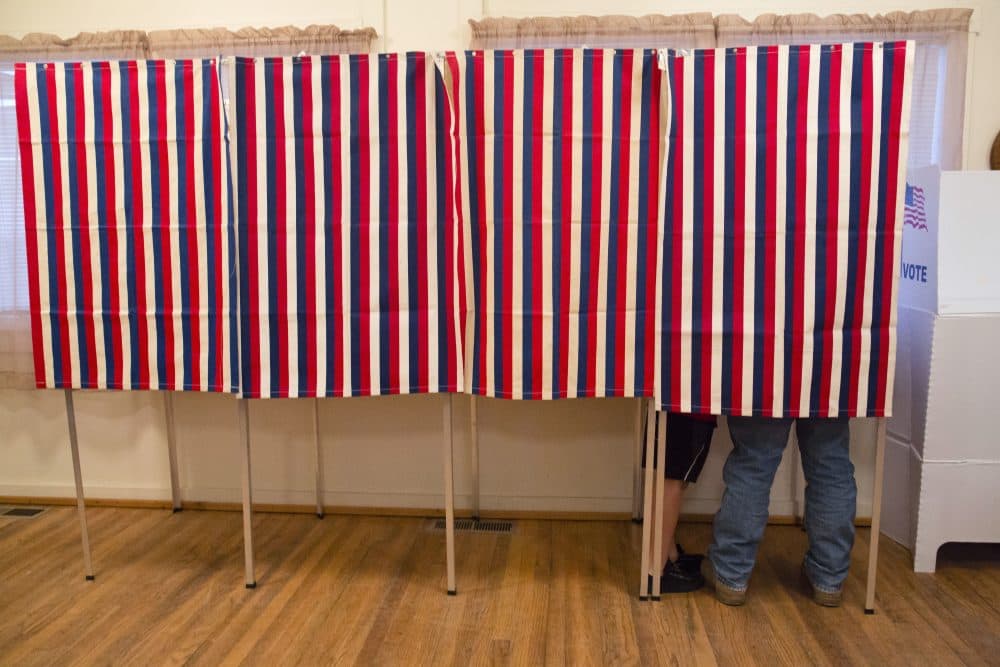Advertisement
Commentary
Did The Media Or Voters Wreck American Politics?

Listening as Donald Trump and Hillary Clinton argued over health care last year, I understood that when they said “Obamacare,” they meant the same thing as the Affordable Care Act (ACA).
Amid online rumors that Clinton was overseeing a pedophile ring, I didn’t grab a gun and race to its supposed pizza joint headquarters, because the story was preposterous to anyone who made it through the fifth grade.
And while well aware of questions over Clinton’s character and honesty, I also knew about the doozies swarming around Trump, from sexual assault and xenophobia to a fraud settlement involving his eponymous university.
How did I come by all this wisdom? By reading a variety of mainstream media. Yet a recent critique in the Columbia Journalism Review (CJR) berates the much-maligned MSM for ignoring substantive issues and for coverage focusing more on Clinton’s warts than Trump’s.
More than bogus-news sites like Breitbart and social media polluted by Russian-planted falsehoods, mainline journalistic malfeasance fueled voter misapprehensions, CJR contends. Its report draws blood with some points, particularly reporters’ inane addiction to horse race coverage — who's ahead, campaign strategies — that voters with lives couldn’t care less about, and which the media has been vowing to curtail since at least the 1980s.
But a tunnel vision focus on campaign coverage, rather than a more panoramic view of events, blinds CJR to the real culprits behind civic ignorance: the voters themselves.
The ignorance can be jaw-dropping. One third of Americans didn’t know or weren’t sure that Obamacare and the ACA are one and the same. (That isn’t just Trivial Pursuit. Some who were dead set against the former supported the latter. It’s impossible to have a rational debate when some of us don’t grasp the vocabulary.)
Meanwhile, almost half of Trump voters swallowed the Pizzagate idiocy.
From where do the misinformed derive their misinformation? CJR argues that Russian Facebook posts, tweets and YouTube videos were a fraction of the material flooding social media. In reality, MSM — The New York Times, Washington Post, CNN, even the Huffington Post — “dominated social media traffic.”
More often than not, their readers and viewers fed on an unbalanced diet of cotton candy (horse race stories) and Clinton-bashing. CJR says a Harvard-MIT research team counted sentences referring to Trump and Clinton from several mainstream sources (no one said media studies was a fun job).
Advertisement
“They found roughly four times as many Clinton-related sentences that described scandals as opposed to policies, whereas Trump-related sentences were one-and-a-half times as likely to be about policy as scandal,” CJR says, a shock considering Trump was flypaper for scandals. (And that my 12-year-old has more policies than the Republican.) If voters thought Clinton a snake or didn’t know what she stood for, “These numbers suggest their views were influenced more by mainstream news sources than by fake news.”
There’s surely some truth in that. Still, many of us who voted for Clinton read the same coverage and yet were familiar with her policies and Trump’s sins. For those who weren’t, might it be that civic indifference and ignorance were pre-existing conditions long before the campaign? The fog surrounding Obamacare suggests that it was. Consider:
The ACA was debated in 2009, enacted in 2010, and upheld by the Supreme Court in 2012. Its federal exchange opened (after highly publicized stumbles) in 2013 and had been running for almost three years by Election Day. The press covered all of this. Those Americans who still didn’t know the ACA was the same thing as Obamacare, and could “support” one but not the other, clearly aren’t glued to The New York Times and Washington Post.
“As has become clear since the election, there were profound differences between the two candidates’ policies,” CJR says. Clear since the election? Anyone who didn’t know before then that Trump and Clinton couldn’t agree on which universe we live in — even granting flawed coverage — is impervious to news.
What’s more plausible is that many voters loathed Clinton after a generation of controversial public service, a hostility reinforced by her controversial husband and misogyny. Meanwhile, plenty of reporting corroborates Trump’s famous observation that his diehards don’t care about his scandals. (“I could stand in the middle of Fifth Avenue and shoot somebody and I wouldn't lose voters.”)
There are greater forces at work here, I’d suggest, than lousy media coverage. We are in the midst of cultural upheaval: the shrinking of the white majority, in large measure because of immigration; an economic dead end for the white working class, even unto premature death; and evolving mores on issues such as gay marriage.
Dying orders invariably spawn rescue efforts; witness the bigotry directed at Italian, Irish and Chinese immigrants in the Gilded Age, or the 10 million voters who supported George Wallace’s last-gasp campaign for Jim Crow in 1968. Combined with the enduring “paranoid strain in American’ politics,” as one historian dubbed it (a reality CJR acknowledges), these changes turbo-charge facts-be-damned prejudices.
The white working class that flocked to Trump cheered his bigotry, first and foremost. To the extent that anger over their becoming economic roadkill motivated some, it was an atavistic rage, since Trump’s campaign comments and governance since (tax cuts for the wealthy) confirm that the troubles of the left-behind don’t keep him awake nights.
It may only be natural that CJR’s analysts shy away from the unpleasant reality that so many voters are comatose vis-a-vis current events or indifferent to Trump’s cancerous character. It’s unnerving to think the country so vulnerable, akin to the JFK conspiracy theorists who couldn't accept that a lone loser could gun down the leader of the free world.
There’s no denying that our free press could do better. It’s more disconcerting to realize how much voter education remains to be done.
